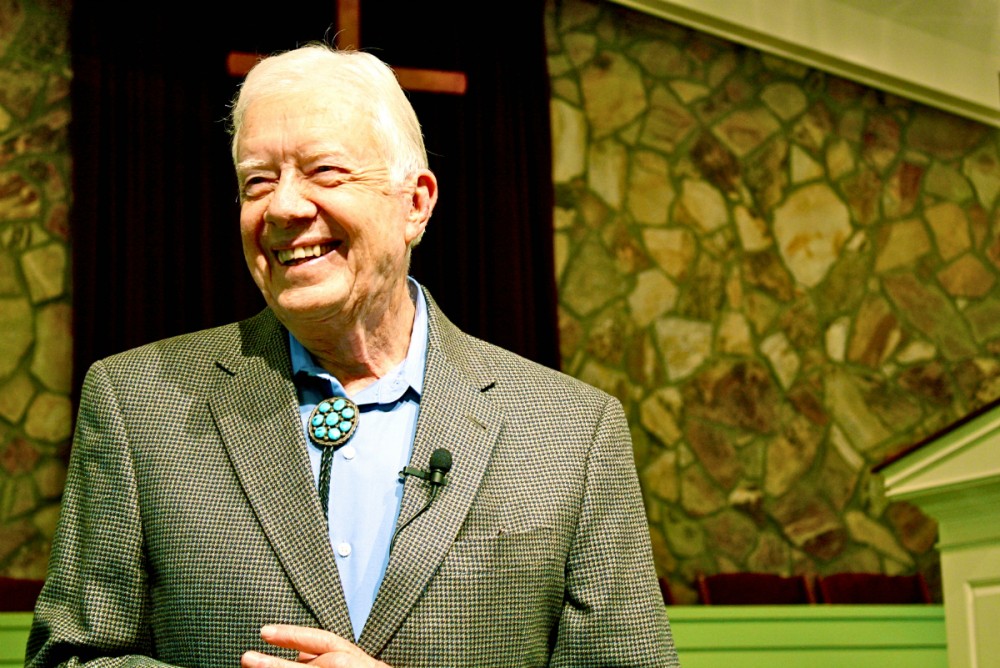Jimmy Carter returns to his hometown in new time of challenge

(The Christian Science Monitor) Jimmy Carter, 90, returned to his hometown of Plains, Georgia, after a recent diagnosis that cancer had spread to his brain.
His return sparked a pilgrimage of nearly 1,000 people to Carter’s regular Sunday school class at Maranatha Baptist Church. To accommodate the crowds, the former president taught a second class at a local school gymnasium.
“You have heard it was said that you will love your neighbor and hate your enemy, but I say to you, love your enemies and pray for those who persecute you,” Carter said. “How would the world be changed if everyone—Syrians, Iranians, Israelis, Palestinians . . . Republicans and Democrats—adopted Christ’s definition of love?”
Residents of the town of 700 say Carter “sets the tone” and “keeps our mind open.” Carter recently decided that, when the time comes, he will be laid to rest in Plains, not at the Carter Center, his “mini United Nations” in Atlanta.
“The importance of Plains to Carter is that he comes back after the presidency, regroups,” said Randall Balmer, author of Redeemer: The Life of Jimmy Carter, “and decides, as a result of being awake in the middle of the night, to start the Carter Center. But earlier, in 1966, after losing his first try for governor in Georgia, he also goes back to Plains and has a spiritual renewal.”
For some, Carter’s journey defines the white southern evolution on race, informed by both his father’s adherence to Jim Crow social standards and his mother’s rejection of them. While largely on the sidelines of the civil rights movement, Carter built his governorship and presidential run on social justice, including the rights of black people and Hispanic farmworkers. And Carter’s human rights and health-care work across the globe has been largely fueled by the changes he witnessed as the South reckoned with institutional racism.
“Carter saw in the South what brave people standing up speaking the truth can accomplish,” said Bob Strong, a Washington and Lee University political scientist.




